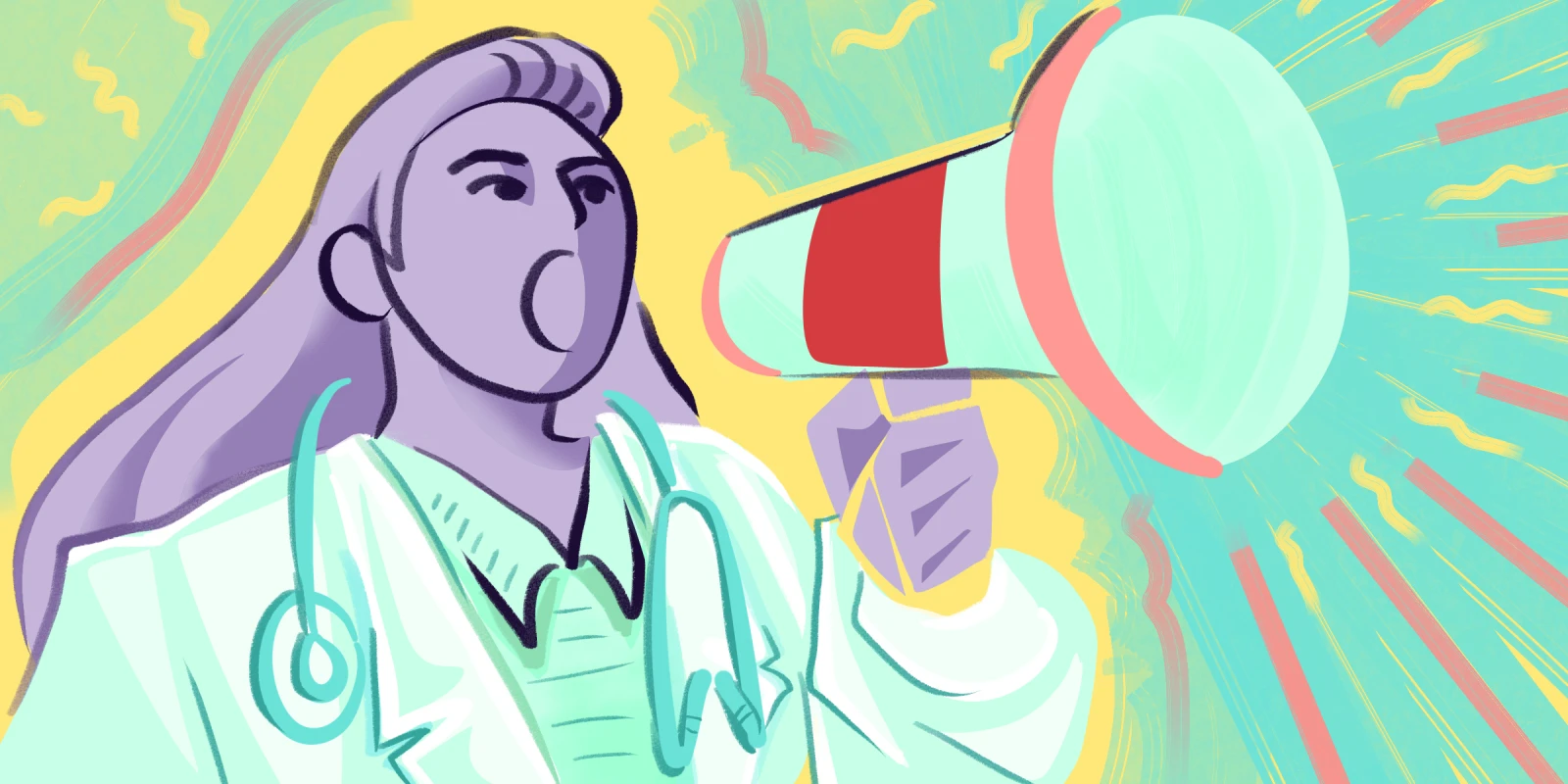I recently had the opportunity to take several pediatric trainees to a national conference. It was a great time, with enough down time to allow for relaxation in the hotel’s pool and to sample the city’s eclectic fare.
It was during the downtime that we met the Drs. Nosy. My two female residents and I were sitting enjoying the hot tub. One is currently interviewing for fellowship (in my subspecialty). She’s incredibly talented and quite the go-getter; I personally think she’ll have no problems matching well, but she’s worried. She’s also struggling to decide which fellowship she wants to rank highest. We sat, discussing such things as hospital reputations, call schedules, locations, research opportunities, and generally what’s important in fellowships.
Twenty minutes after we arrived, Drs. Nosy came to the pool area. We said hello and continued our conversation. Soon, he started clearing his throat and making “harumphs,” while his wife seemed agitated. Finally, he said, “Fellowship?” The resident gave a nod. He replied, “Well, we’re both doctors. My wife, she is too. We’re here on vacation and trying to relax. Would you mind not talking about that?”
What followed was initial shock and quiet mumbles from my group. Our Midwest female sensibility had us back down to avoid confrontation. There was a period of silence, and then some forced conversation about movies that eventually moved on. Mr. Doctor then swam a little and seemed relaxed. Mrs. Doctor still seemed anxious. Neither seemed happy. I wasn’t sure why they stayed if they weren’t comfortable in the space. When they finally did leave, we had a collective sigh of relief and agreed that that was one of the ruder asks we ever had. We continued to reference it for the rest of the trip, laughing about it and realizing how ridiculous it was.
However, it stuck with me; I’ve been thinking about it a lot. I’ve come up with about a hundred different responses I should have said. Instead, I was made to feel shame for existing, when really, his actions were shameful. What it boils down to is that this is another male doctor who asked three women physicians to be quiet for his pleasure! He walked into a space he wasn’t comfortable in and asked us to change it for him. It’s not OK.
It’s not the first microaggression I’ve dealt with in my career. It’s not even the most egregious. I’ve counseled a female resident who was told she talked too much on rounds early in a rotation, and after “fixing” that, her feedback at the end was that she was too quiet. Her male colleagues were never told not to talk on rounds. I’ve talked to nursing colleagues who have been sexually assaulted (typically groped) by adolescent patients. This is often laughed off because it’s common and “No one gets hurt.” The one that happens to me most often is when I walk into a room and the parent is on the phone. They look up, I say, “I’m Dr. Biber, the attending for your child,” and they tell the person on the phone that they have to go because, “the nurse just walked into the room.” I’m frequently told parents say that they’ve not seen the doctor today, even after I’ve just visited and answered all their questions. The time that really sticks with me – as I’m sure Dr. Nosy also will – is when a male surgery colleague suggested to me and a female partner that “Maybe you should have Jim or Mike [give a family some bad news].” To his credit, when I asked him point blank, “Did you just suggest that we have a man talk to the family?” he became embarrassed but walked it back to “someone older.” The anti-woman sentiment was felt.
I realize that my big sins are that I lack white hair and a penis. I’m working on the white hair, but I’ve started to realize that the micro- (and macro-) aggressions that we must deal with as women in medicine are overwhelming and come at a cost. At best, they create hurdles to gain respect. At worst, they lead to self-doubt, depression, job dissatisfaction or burn out, but can lead to even worse if the aggressions are extreme. I also recognize that these are things my male colleagues don’t typically experience. Not to say they don’t have obstacles to overcome, but these additional roadblocks make it much harder to be a woman in medicine.
I think that recognizing (and really just naming) the microaggressions is big. I’ve been trying to deal with them in private because they make me feel ashamed, but we all have the same problem and shouldn’t feel like we have to fix it alone, nor should we let it shame us. We need to support and stand up for each other. We need to recognize that the shame is not on us, but really ought to be on the (micro)aggressors who act like women aren’t equal to men in our profession. We need to get our male allies to stand up for us and to recognize the microaggressions they don’t see so we can bring it to the population at large. Women are still struggling to get out of the supporting role that Samuel Shem painted them in nearly 45 years ago in “House of God.” We shouldn’t have been the playthings and devotees of the patriarchy then, but we surely have shown we don’t deserve that now. We are more than pretty confidence boosters, yet it seems we need to continue to prove it.
So, tell your female trainees they’re supposed to participate in rounds. Give them permission to name microaggressions, in confidence or with a loud voice. Tell your nurses that they don’t have to endure inappropriate touching and that it’s OK to tell their patients to stop — and to escalate it if they won’t. Tell your male colleagues when their behavior is troublesome. Ask for help if you can’t do it alone. Name misogyny when you see it. Empower yourself and others. And please, next time you’re asked if you’d mind being quiet or changing your behavior to please a man, let him know that, “Actually sir, I do mind.”
Dr. Biber is a pediatric intensivist at Akron Children’s Hospital. She’s trained in Ohio and West Virginia. Her academic interests are in procedural sedation and asthma. Names have been changed for privacy.
Illustration by April Brust






